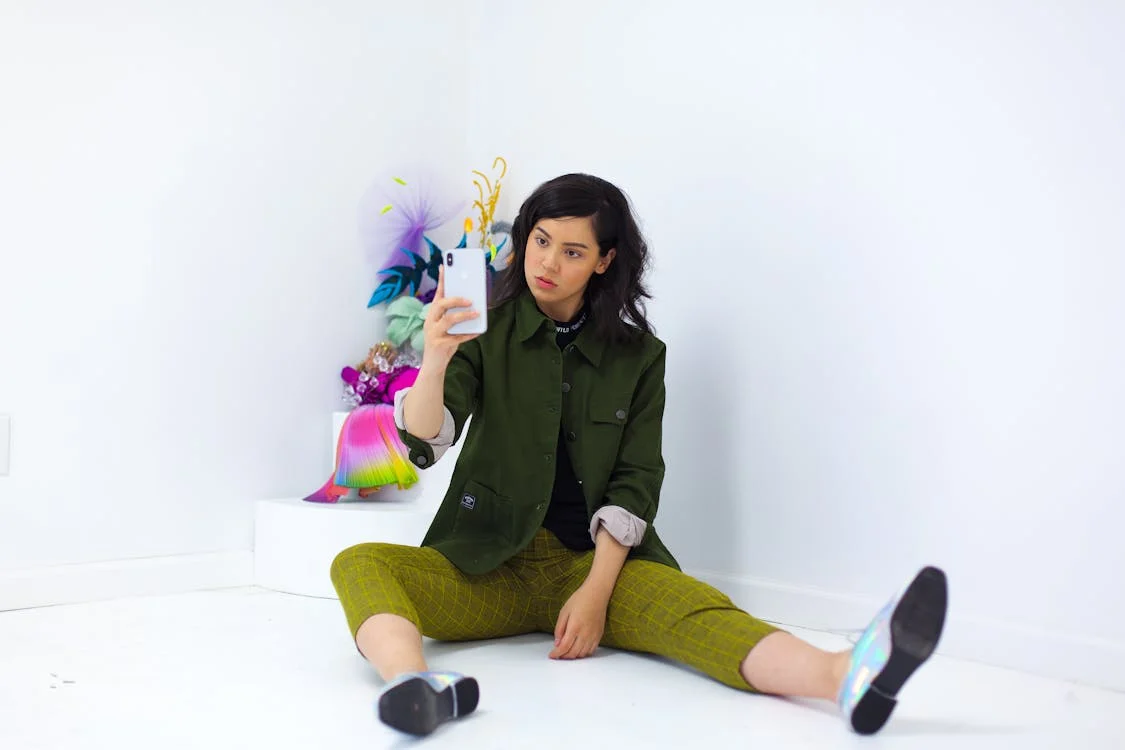 Mind
Mind
- Digital and Modern Well-being
- Mental Health and Emotional Well-being
- Mind-Body Connection and Holistic Health
- Parenting and Family
- Personal Growth and Development
- Relationships and Social Well-being
- Stress and Relaxation
- Therapeutic and Creative Practices
- Trauma and Recovery
- Work, Productivity, and Discipline
 Body
Body
 Fitness
Fitness
 Food
Food
 Beauty
Beauty
The Role of Social Media in Shaping Body Image

Social media has become a powerful force in shaping how we perceive ourselves and others, particularly regarding body image. With platforms offering an endless stream of images, videos, and commentary, social media can influence self-perception in both positive and negative ways. Understanding its role in shaping body image is crucial for navigating these effects and fostering a healthier relationship with ourselves.
How Social Media Impacts Body Image
1. Exposure to Unrealistic Standards
Social media often showcases curated and edited content, presenting unattainable beauty ideals.
- Filters, photo editing apps, and professional lighting can distort reality, making flawless skin, perfect proportions, and idealised lifestyles appear achievable.
- Constant exposure to these images can lead to unhealthy comparisons and dissatisfaction with one’s own body.
2. The “Highlight Reel” Effect
Social media users typically share their best moments, creating a skewed representation of reality.
- This selective sharing can lead to a phenomenon called “upward comparison,” where individuals compare themselves to others who seem more attractive, fit, or successful.
- Such comparisons often result in feelings of inadequacy and lower self-esteem.
3. The Rise of Influencers
Social media influencers often play a key role in perpetuating beauty standards.
- Fitness, fashion, and beauty influencers may promote specific body types or beauty routines, setting narrow definitions of attractiveness.
- Sponsored content for weight loss products or cosmetic enhancements can amplify insecurities.
Positive Influences of Social Media on Body Image
While social media is often criticised for its negative effects, it can also promote body positivity and inclusivity:
- Body Positivity Movements: Many creators use their platforms to celebrate diverse body types, challenging conventional beauty norms.
- Community Support: Social media offers spaces for individuals to share personal struggles and successes, fostering connection and encouragement.
- Educational Content: Increasingly, influencers and organisations are sharing content about self-acceptance, mental health, and the importance of holistic wellness.
The Psychological Impacts
Social media’s influence on body image goes beyond mere appearance and can affect mental health significantly:
- Low Self-Esteem: Frequent comparisons can erode confidence.
- Body Dysmorphia: The constant pursuit of perfection can trigger or worsen body image disorders.
- Disordered Eating: Exposure to extreme diet trends or fitness regimens may encourage unhealthy habits.
Strategies for Navigating Social Media Positively
1. Curate Your Feed
- Follow accounts that promote realistic, diverse, and inclusive representations of beauty.
- Unfollow accounts that make you feel inadequate or promote unhealthy ideals.
2. Set Boundaries
- Limit time spent on social media to avoid overexposure.
- Use apps that track screen time to monitor your usage.
3. Be Critical of Content
- Remember that much of what you see online is edited or staged.
- Avoid comparing your unfiltered reality to someone else’s curated content.
4. Engage in Positive Communities
- Join groups or follow hashtags that celebrate body positivity, self-love, and wellness.
- Share your own experiences to inspire others and build supportive networks.
5. Focus on Function, Not Form
- Shift your mindset from how your body looks to what it can do. Celebrate strength, endurance, and health.
6. Take Digital Detoxes
- Regularly disconnect from social media to reset your perspective and focus on real-life relationships and experiences.
Social Media’s Responsibility
Platforms also bear responsibility in shaping healthier narratives around body image:
- Transparency: Some platforms now label edited images, helping users differentiate between reality and manipulation.
- Algorithm Adjustments: Encouraging diverse and body-positive content rather than promoting unrealistic ideals.
- Community Guidelines: Banning harmful content, such as extreme diet promotions or toxic fitness trends.
Conclusion
Social media wields immense influence over body image, serving as both a challenge and an opportunity. While its curated content can perpetuate unrealistic ideals, it also offers platforms for positive movements and supportive communities. By approaching social media mindfully—curating our feeds, setting boundaries, and engaging critically—we can minimise its negative effects and leverage its potential to promote self-acceptance and inclusivity. With intentional use, social media can become a tool for empowerment rather than insecurity.
